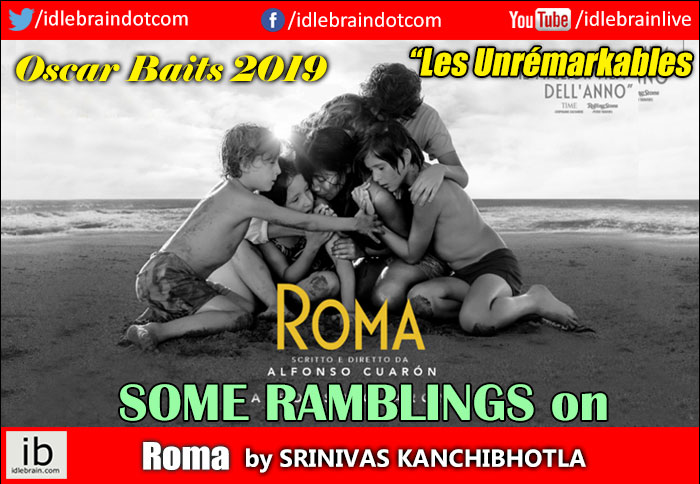
Before the advent of the reality television, it was the movie "The Truman Show" from late 90s which gave the first glimpse of what it was like to marvel at the mundane, when a person's life is captured constantly on the camera and his day to day becomes a matter of public consumption, every waking, sleeping, living, rejoicing, heartbreaking moment of it. More than the voyeuristic/gawker's tendencies that compel to watch someone else's life play out in front of the eyes in real time, it is the sense of relatability that someone out there is undergoing the same trials and tribulations as the rest of the world that really draws the viewer into these slice of life movies. More when the tools of the trade like stylization, melodrama, artistic flourishes etc are done away with and life is presented as is, the results are often surprising - the images become even more captivating, the action much more personal and the presentation becomes REAL.
A simple example - consider the effect of a violent scene without the regular trappings of fast cutting or pounding music. In the final climactic battle sequence in "Saving Private Ryan", in the scuffle between a stronger German soldier and a desparate Allied one, the German soldier climbs over the top of the American and starts to slowly descend his knife into the heart of the latter. In the usual cinematic grammar, the sequence would be over in a few seconds and the action moves on to the next setup, but Speilberg slows down the moment and heightens the reality of it, with the American soldier first fighting back, then slowly losing the battle, followed by begging the German to not go through with impaling and finally gurgling and choking on his blood and shock of the moment. Out of all the horrific sensational battle sequences staged in "Ryan", this moment truly stands out for the weight and honesty of the reality that war is pure hell. It had no use for "cinema" other than a camera to capture the events unfolding in front, and the effect is far more greater than the rest of "cinematic" moments in the movie combined.
Setting the historical heft of the 70s aside where the movie is sited, and ignoring for a moment the politcal upheaval that Mexico was passing through during that period , "Roma", the story of a maid in an upperclass household, is still a captivating experience that is at once private and passionate while also being ubiquitous and universal. That it doesn't feel the need for drama, of which there could be plenty involving a maid with a heart of gold toiling away her days in service of her bourgeois masters, that it can pull the strings and tug at the heart without any melodrama, even with a bunch of little kids in play who remain quite attached to the maid that raised them, that it does all this with minimal dialogue (which doesn't grasp at or aspire for any greater philosophical moorings), in black and white, and with no real story/plot to boot, is a testament to the power of realism. When done right, there is nothing more interesting than the mundane (need more proof? sit on a shore and watch the waves rise and crash) and nothing more dramatic than the ordinary (need a testatement? sit at an airport or train station or a hospital and watch lives crisscross in a hurry). Right from the elaborate opening shot of soap suds getting washed into the drain for the entire length of the title sequence down to the (jawdropping) climactic sequence of the maid trying to rescue her wards, the director pulls the audience in (holding them at arm's length) and immerses them in the ordinary and lets them add up the individual pieces to make up their own whole. The combination of this realism and routine against only transactional conversations creates a very hypnotic effect, the kind that murals (or graffitti) on walls in urban areas aim to achieve.
What's an Alfonso Cuaron movie with a tip of the hat to its sumptuous photography! Taking over the duties from his regular lensman (and perennial Academy Award winner), Emmanuel Lubezski, Curaon, apart from indulging in his trademark unbroken continuous shots, goes one step further and virtually eliminates close-ups from the entire movie emphasizing the reality-show, documentary-like, clinical and unemotional aspect of the events. It is a brave choice to try creating empathy using wide shots alone, which tend to be brutually objective, and somehow Curaon manages to pull off the impossible that by the end of the movie, the maid becomes as a fully realized human being instead of being a stand-in sympathy machine. Personal, autobiographical, passion projects usually tend to be fulfilling only for the maker who managed to get the clout to wallow in his indulgence riding on his previous successes. But "Roma", despite being personal and autobiographical, manages to slowly draw the audience in and sustain their interest on the strength of its empathy created by the sublime craft. The pregnant maid slowly walks up to the terrace on a cloudy evening, unclips all the clothes billowing against a gentle breeze on the clothesline, bunches them in her arms, lays down on the floor on her back to ease off the weight and looks up the skies....as a plane passes through the entirety of her field of vision....with a dull drone sound.... The beauty of life lies in its simplicity.
checkout http://kanchib.blogspot.com for Srinivas's Blog.
